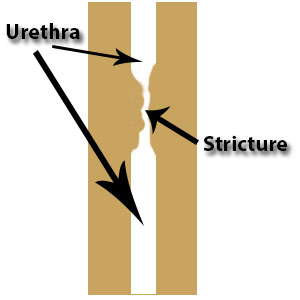Jerry G. Blaivas, MD, FACS
Dr. Blaivas is a world-renowned urological expert, surgeon, distinguished author, educator, and medical pioneer. He was one of the founders of urodynamics and established many of the current surgical procedures used to correct stress incontinence, urinary fistulas, urethral diverticulum, overactive bladder and neurogenic bladder.
He is also one of the few surgeons who routinely performs reconstructive surgery for prolapse and incontinence without the use of mesh. His success in this area has led him to publishing one of the largest series in the world on treatment of mesh complications.
Dr. Blaivas possesses decades of experience providing urology care to some of the most complex cases ever encountered, bringing academic and research-based modernization to the clinical forefront. His research in developing new medical techniques has become the standard in patient care, including breakthrough treatments and research in:
- Mesh complications
- Radiation complications
- Autologous Slings
- Natural Tissue Repairs
Dr. Blaivas was recently honored by the Canadian Journal of Urology as one of their Legends of Urology. Read the article >
Schedule an appointment online or call Dr. Blaivas today at (646) 205-3039 to schedule a confidential consultation.
Insurance Information
Dr. Blaivas does not participate with private insurance plans. He is considered an “Out of Network” physician, which means that payment in full is expected at the time of the visit and you will be reimbursed directly according to your insurance plan. As a courtesy, we offer to complete and mail claims on your behalf and assist you in obtaining timely reimbursement.
About the Uro Center of New York
At the Uro Center of New York, we combine clinical and academic excellence in a private practice setting. For over twenty years, our staff has been committed to diagnosing and treating people with bladder and prostate conditions. Our services include the use of state-of-the-art video urodynamic equipment and a custom-designed computer system that assists our physicians in ensuring an accurate and prompt diagnosis.





 There are lots of things that can cause issues with urination. If you experience a burning sensation when you try to urinate, this is usually an indication of a problem with the urinary tract. Urinary tract infections are most often to blame, but there can also be things like urethral strictures that can cause the same sensation. Here we are going to look at what can cause a burning sensation when you try to pee and what you can do if you have these symptoms.
There are lots of things that can cause issues with urination. If you experience a burning sensation when you try to urinate, this is usually an indication of a problem with the urinary tract. Urinary tract infections are most often to blame, but there can also be things like urethral strictures that can cause the same sensation. Here we are going to look at what can cause a burning sensation when you try to pee and what you can do if you have these symptoms. This is caused by bacteria present in the urethra, bladder, and the urinary system as a whole that would not normally be there, causing some inflammation and pain. However, this is not the only reason why you may experience these symptoms. Pain and discomfort when urinating can also be a sign of other things, such as some types of cancer, prostate issues in men, and scarring or inflammation in the urethra caused by injury, surgery, or trauma. When it is the latter, this is usually deemed to be a urethral stricture, which is something that may need to be treated with surgery.
This is caused by bacteria present in the urethra, bladder, and the urinary system as a whole that would not normally be there, causing some inflammation and pain. However, this is not the only reason why you may experience these symptoms. Pain and discomfort when urinating can also be a sign of other things, such as some types of cancer, prostate issues in men, and scarring or inflammation in the urethra caused by injury, surgery, or trauma. When it is the latter, this is usually deemed to be a urethral stricture, which is something that may need to be treated with surgery. The first thing that you should do if you are experiencing problems when you pee is to see a doctor or a specialist urologist. If you have experienced some injury to your lower abdomen or have had some surgery that may have affected your urethral system, then it could be that you have something that will need further intervention. If you do not think that this is a likely cause, then it is most probable that you have an infection of some kind. However, since these symptoms can be related to something more serious such as certain types of cancer, it is very important to get a proper diagnosis. Urinary tract infections can be treated quite easily with antibiotics, but there could be something else at play that your doctor will need to investigate.
The first thing that you should do if you are experiencing problems when you pee is to see a doctor or a specialist urologist. If you have experienced some injury to your lower abdomen or have had some surgery that may have affected your urethral system, then it could be that you have something that will need further intervention. If you do not think that this is a likely cause, then it is most probable that you have an infection of some kind. However, since these symptoms can be related to something more serious such as certain types of cancer, it is very important to get a proper diagnosis. Urinary tract infections can be treated quite easily with antibiotics, but there could be something else at play that your doctor will need to investigate.



 First consider your medical history. If you’ve had any trauma to the pelvis, sexually transmitted infections, had anything inserted in the urethra – particularly if it was traumatic – you are at risk for having a stricture. Also, if you’ve had a stricture in the past and have developed urinary symptoms you are at much higher risk of a stricture. These are just a few of many things in your medical history that raise the possibility of a stricture.
First consider your medical history. If you’ve had any trauma to the pelvis, sexually transmitted infections, had anything inserted in the urethra – particularly if it was traumatic – you are at risk for having a stricture. Also, if you’ve had a stricture in the past and have developed urinary symptoms you are at much higher risk of a stricture. These are just a few of many things in your medical history that raise the possibility of a stricture.
 Urologic Problems in Men
Urologic Problems in Men Urologic Problems in Women
Urologic Problems in Women